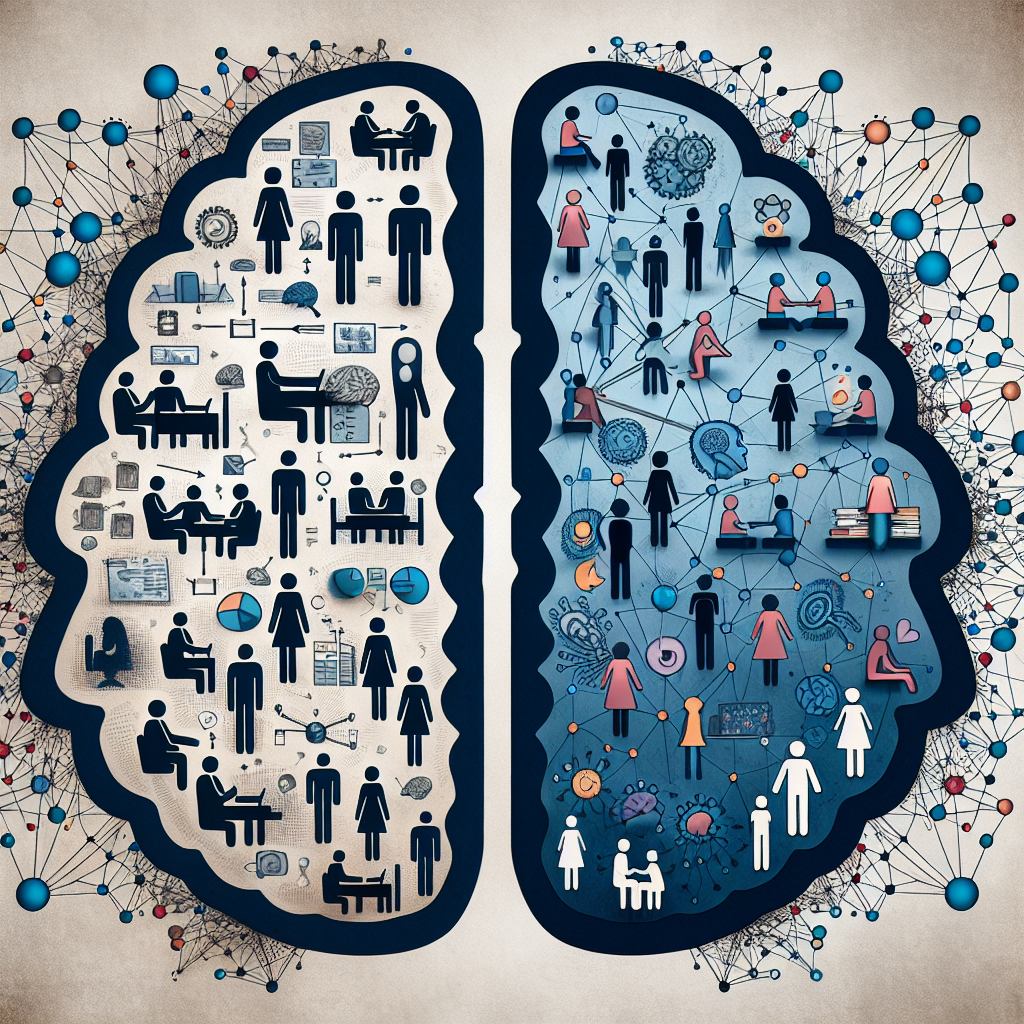Emotional intelligence, often referred to as EQ, is the ability to recognize and manage one’s own emotions and to understand and influence the emotions of others. It plays a crucial role in both the workplace and personal relationships, as it affects how we interact with others, make decisions, and handle stress. In this article, we will explore the importance of emotional intelligence in these two areas and discuss ways to improve it.
In the workplace, emotional intelligence is a key factor in determining success. Research has shown that people with higher levels of emotional intelligence tend to be more successful in their careers, as they are better able to understand and navigate office politics, communicate effectively, and build strong relationships with colleagues and clients. They are also more resilient in the face of challenges and better equipped to handle conflict and stress.
One of the key components of emotional intelligence is self-awareness, or the ability to recognize and understand one’s own emotions. Individuals who are self-aware are better able to manage their emotions and reactions in the workplace, leading to more positive outcomes in their interactions with others. They are also more empathetic and able to see things from others’ perspectives, which can help them resolve conflicts and build stronger relationships.
Another important aspect of emotional intelligence in the workplace is social awareness, or the ability to recognize and understand the emotions of others. This skill is crucial for effective communication and collaboration, as it allows individuals to pick up on nonverbal cues and respond appropriately to the emotions of their colleagues. People with high social awareness are able to build trust and rapport with others, leading to more successful working relationships.
Emotional intelligence also plays a role in decision-making in the workplace. Individuals with high levels of emotional intelligence are better able to weigh their emotions against logic and rationality when making decisions, leading to more thoughtful and effective choices. They are also better able to manage their impulsivity and control their emotions in high-pressure situations, which can lead to more successful outcomes.
In personal relationships, emotional intelligence is equally important. It helps individuals navigate the complex dynamics of relationships, communicate effectively, and build strong bonds with others. People with high levels of emotional intelligence are better able to express their feelings and needs, listen to others, and resolve conflicts in a healthy and constructive manner.
One of the key benefits of emotional intelligence in personal relationships is improved communication. By being able to recognize and understand one’s own emotions, individuals are better able to express themselves clearly and assertively, leading to more open and honest communication with others. They are also better able to listen actively and empathize with the feelings of their partners, leading to deeper and more meaningful connections.
Emotional intelligence also helps individuals in personal relationships manage conflict and resolve disagreements in a productive way. People with high emotional intelligence are able to stay calm and composed during conflicts, which allows them to think more clearly and find constructive solutions to the issues at hand. They are also better able to understand and validate the emotions of their partners, leading to more effective communication and resolution of conflicts.
In order to improve emotional intelligence, individuals can practice a number of strategies. These include mindfulness exercises, such as meditation and deep breathing, which can help individuals become more aware of their emotions and reactions. Individuals can also practice empathy by actively listening to others, seeking to understand their perspectives, and responding in a compassionate and supportive manner.
As emotional intelligence becomes more recognized as a key factor in success in both the workplace and personal relationships, more organizations are incorporating it into their training programs and hiring practices. Employers are recognizing the value of employees with high emotional intelligence, as they tend to be more resilient, empathetic, and effective communicators. Likewise, individuals are increasingly seeking to improve their emotional intelligence in order to enhance their professional and personal relationships.
In conclusion, emotional intelligence plays a crucial role in both the workplace and personal relationships. Individuals with high levels of emotional intelligence are better able to navigate complex social dynamics, communicate effectively, and build strong relationships with others. By practicing mindfulness, empathy, and self-awareness, individuals can improve their emotional intelligence and reap the benefits in their professional and personal lives.
Frequently Asked Questions (FAQs):
Q: Can emotional intelligence be learned or improved?
A: Yes, emotional intelligence can be learned and improved through practice and mindfulness exercises. By becoming more self-aware, empathetic, and socially aware, individuals can enhance their emotional intelligence skills.
Q: How can emotional intelligence benefit me in the workplace?
A: Emotional intelligence can benefit you in the workplace by improving your communication, decision-making, and conflict resolution skills. It can also help you build stronger relationships with colleagues and clients.
Q: What are some strategies for improving emotional intelligence?
A: Some strategies for improving emotional intelligence include practicing mindfulness exercises, such as meditation and deep breathing, and actively listening to others with empathy and compassion.
Q: How can emotional intelligence benefit me in personal relationships?
A: Emotional intelligence can benefit you in personal relationships by improving your communication, conflict resolution, and empathy skills. It can help you build stronger and more meaningful connections with others.
Q: Can emotional intelligence be measured?
A: Yes, there are assessments and tests that can measure an individual’s emotional intelligence levels. These assessments can help individuals identify their strengths and areas for improvement.




Leave A Comment